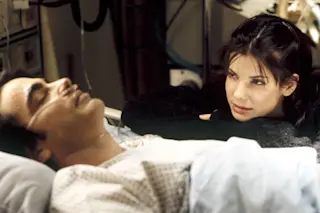In the 1995 movie "While You Were Sleeping", lonely Lucy (played by Sandra Bullock) saves a stranger from certain death after he falls on the train tracks. But in the hospital, she lies to the man's entire family by claiming she's his fiancé. It goes downhill from there. It’s the plotline of countless romantic comedies: a tiny lie or deception grows into a monster until everything falls apart in hilarious, heart-breaking and ultimately heart-melting fashion. It’s the ol’ “snowball lie” trope, and it plays out in classics like "Sabrina" to more modern flicks like "Wedding Crashers." There’s a reason the snowball lie is a popular premise in movies; it's a reflection of real life. Tax evaders, cheating spouses and blood-doping athletes often recall dipping their toe in the shallow waters of deception long before they found themselves drowning in a sea of increasingly severe, perhaps criminal, fabrications. So why have ...
From Fibs to Fraud: Why Lying Is a Slippery Slope
Explore the snowball lie trope and its real-life implications on dishonesty escalation and emotional adaptation theory.
More on Discover
Stay Curious
SubscribeTo The Magazine
Save up to 40% off the cover price when you subscribe to Discover magazine.
Subscribe













